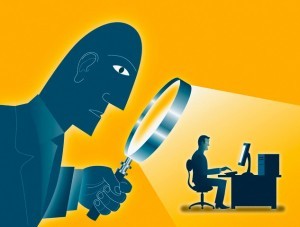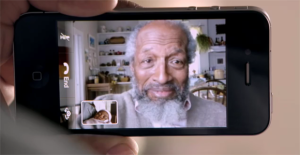I’d like to make the disclaimer that the inventions mentioned here are purely fictional.
The New Apple Transformix: The Last Device You’ll Ever Need
This Summer, Apple releases it’s new device called the Transformix. It’s an adaptable and transformable device that can become any object of roughly the same mass. It will come in 3 sizes (tablet size, big screen tv size and car size). In its raw form it only has a voice interface.

Tablet Sized Transformix
At their latest demonstration, Apple showed the tablet sized Transformix change from a cell phone, to a tablet, to a rock, to a glass, to a furry Pokemon doll. In other demonstrations, the car sized Transformix was able to mimic the exterior of several different cars including a Ford Mustang, Mercedes E Class, a Corvette and a pickup truck. Before you get too excited, the engine is sold separately. The Transformix is due to hit select stores in late July.
Car Cameras to Catch People Texting and Driving
Texting while driving, or distracted drivers cause 100s of accidents every year. Despite an expensive and far reaching ad campaign meant to stop people from texting and driving, it still remains an issue. In response to this, car manufacturers will be installing a multitude of outward facing cameras in all vehicles starting next year.


The system is set up so that when you press a button on your steering wheel, the surrounding 30 seconds (15 seconds before you pressed the button and 15 seconds after you pressed the button) of video from all cameras is saved. When you get home you can choose to review and upload the video to authorities.
New Facebook App Measures the Diversity of Your Network
How ethnically diverse is your circle of friends? And how does it compare to the diversity of other peoples groups? If you are a Facebook user, you will soon have the answer. Facebook plans to roll out a new feature that will identify different ethnic groups in your photos and among your list of friends.

Exactly how the algorithm works is a secret. What we do know is that it works pretty well. In test after test the app was able to calculate a diversity score of profiles and guess which friends were mere acquaintances and which friends were close confidants. It could also accurately guess the ethnicity of the people in the photos about 95% of the time.
The Big Business of Dating Gets Even Bigger
The latest players to get into the match making arena make for strange bedfellows. Comcast, Google, Microsoft and Apple have joined forces to create the ultimate predictor of romantic success. At first glance it would seem that these huge corporations would be the last to know anything about romance, let alone give advice. But as it turns out, these 4 companies know more about most people than the people know about themselves. Online habits, mood fluctuations, food preferences, political beliefs, communication styles and habits, vocabulary, movie preferences…you get the picture…they know a lot. In recent beta testing over the course of 2 years, the algorithm did some pretty amazing things. Follow up interviews verified many of its predictions.

Seemingly unlikely matches were sometimes made. There were even several subjects who were matched with someone of the same gender even though they had never been in a homosexual relationship. When asked about the results they reported having had those longings but never acting on them. “It’s not as easy as pairing people who like the same things, together.” Says Ike Sterling, head of the new dating initiative. “Differing tastes and preferences sometimes interact in a complimentary way that you could not predict unless you see the data.”








